Are SEO Group Buy Services Ethical, Safe, and Legal?

One thing you might notice after spending some time in the marketing industry – or reading blog posts people like me write – is that we're generally quite concerned with price. Pricing for tools is a primary determining factor for how viable any given tool is for many businesses. There are thousands upon thousands of small businesses online that would love to have access to high-end tools, but simply can't afford it.
Sure, a lot of these tools have introductory packages, pared-down low-cost options, or free trials, but that's really not the same thing. It's like trying to enter the Tour de France with a bike you bought at WalMart. Even if you're in great shape, the advantage the good bikes give to your competition is insurmountable.
It's no wonder, then, that a lot of marketers look for some alternative. That's why the concept of a "SEO Group Buy" sprang up, and it's why they're so attractive.
 30 Second Summary
30 Second Summary
You might be tempted by SEO group buys when you want access to expensive marketing tools but can't afford them. Through these plans, you share costs with others by splitting access to premium accounts paying much less than normal prices. But you should know this practice breaks most tools' terms of service and puts you at risk. If caught, you'll lose access without warning and your data could be compromised. Instead, you can use free trials, find cheaper alternatives, save up for paid tools or hire an agency that already has access to these tools.
What Is an SEO Group Buy?
First of all, what is an SEO group buy? If you're new to the concept, I'll explain.
The idea, essentially, is cost sharing. You know how some companies offer family plans, where you can pay a little more for, say, Spotify, than you would for a solo account, but get access for several people? The intention is to have one account for multiple members of a family.
There's a "dark side" to this kind of plan, which is that communities will often organize group buys for this. Six people who aren't otherwise affiliated will all sign on to the one "family" plan, each one of them paying 1/6th of the monthly cost to the person who organizes it, who pays the full bill themselves.
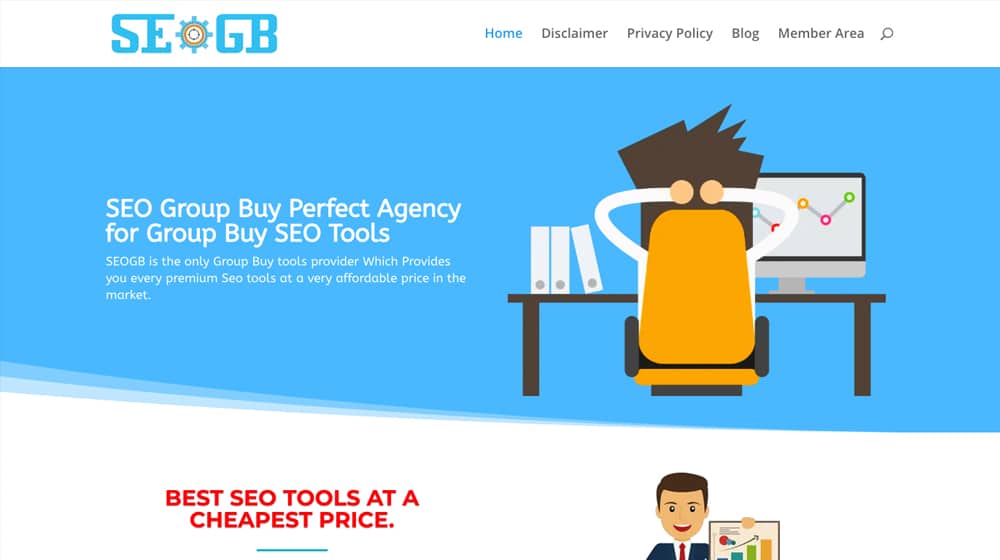
Obviously, companies that offer family plans would prefer to keep it to actual families, but it's difficult to identify the difference. After all, my family could very well be disparate, living in various places across the country, and there's no way for you to know without jumping through a ton of hoops for verification.
Well, not all companies offer family plans. In fact, a ton of them don't. The vast majority of SEO companies might, if anything, offer "team" plans where one account holder can add team members, but that still limits them to working on the projects set up by the account holder.
So, some sketchy marketers decided to make their own version of family plans. They buy the account, and they sell access to it. The group buy manager pays, say, $1,000 for a slate of 7 different high-end marketing tools. They then get 200 different people to pay them $30 to access that pile of tools. They get their $1,000 back, 200 different people get access to the tools, and everyone is happy.
Well, not everyone is happy. The companies whose services are part of the group buy are definitely not happy, since they're serving 200 people for the price of one. And, of course, there are other problems as well.
Are SEO Group Buys Legal?
First of all, let's look at whether or not SEO group buys are legal. The answer is, "maybe, but probably not."
So here's the deal. The term "SEO group buy" is basically just a nice way to say "account sharing scheme." I can guarantee you that pretty much every high-end SEO tool has a clause somewhere in their terms of service that says you are not allowed to account share, and that if you do, there can be repercussions.
Usually those repercussions just mean "the account is banned" and they may blacklist the account holder information. Of course, the SEO group buy manager will use fake information to register their accounts, so that doesn't actually stop them, it just delays them.
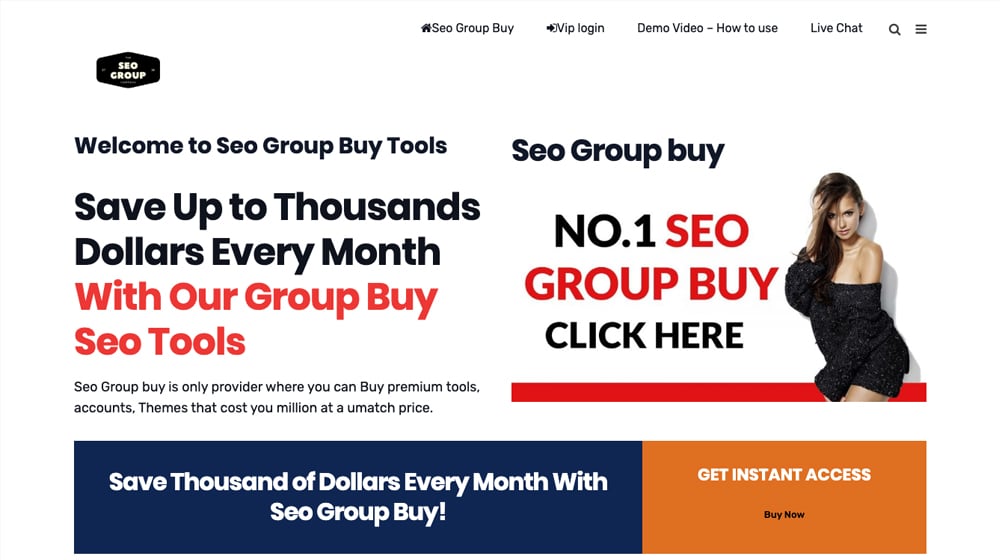
As far as actual state, federal, or international laws go, there's nothing out there about account sharing (that I could find). It's the kind of thing that filters down into contract law, and contract law depends on the contract. The contract, in this case, is the terms of use of the company.
So, violating a terms of service document means the penalties associated with the contract can be invoked, which is again typically just banning the account. In cases of SEO group buys, though, the company may have more incentive to track down whoever runs it, and pursue actual legal action against them. That won't usually trickle down to you as a customer of the group buy, but it will mean the group buy manager can disappear with no warning. I've seen this happen first-hand.
Are SEO Group Buys Ethical?
Is violating any contract ethical? There's an ethical statement to be made about some contracts stipulation unethical situations, and thus violating them becomes ethical. Laws aren't always just, after all.
The thing is, that kind of ethics tends to revolve around decisions of oppression, of rights, of racism, and equality. It doesn't revolve around the use of high-end SEO and marketing tools. You're not entitled to the use of these tools. It's not a human right to have access to them. It's not oppression when you can't afford them.
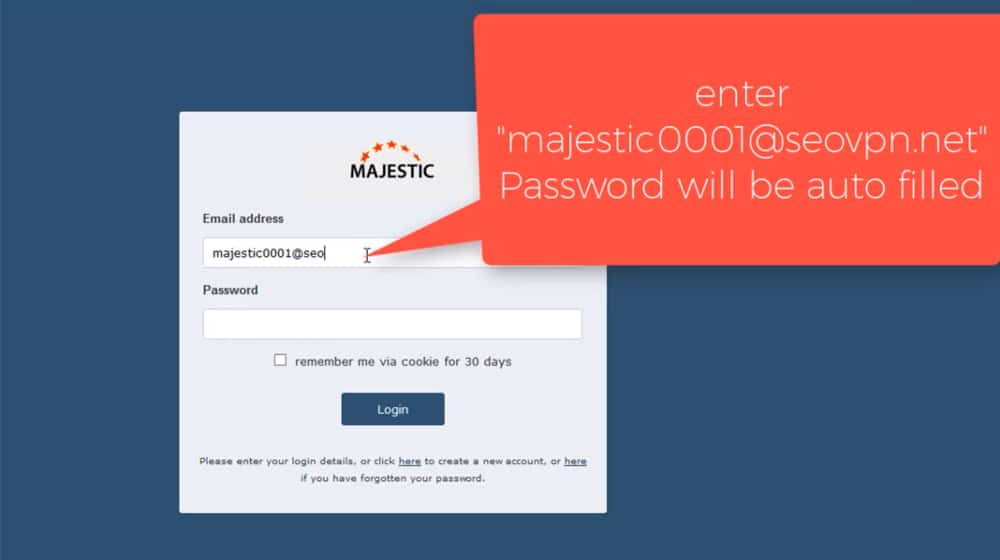
SEO group buys are not, in any way, ethical. You are literally participating in a kind of fraud against the companies whose service you value. As a customer, generally the worst that can happen to you is that you lose access, but if group buying became so huge that it hurt the profits of the companies making the tools, it's entirely possible that those companies could be forced to close down.
Are SEO Group Buys Safe?
This one tends to depends a little bit on how the group buy is implemented. Many SEO group buys operate through some pretty strict filtering. It's easy to detect account sharing by, for example, noticing that one account is being accessed by 20 different IP addresses all around the world. That's why most of these group buys set up a virtual desktop on a computer network somewhere, operating through a VPN and a proxy to filter the IP address, so all of the customers sending traffic look like they're coming from the same place.
There are all manner of possible safety concerns, however.
First of all, you're giving your contact and financial information to someone whose entire business model is committing fraud against companies. Unlike legitimate companies, you have no way to know if this person is simply keeping and selling that information later. Obviously, the group buy organizer has an incentive to not scam their customers, the same as any business, but if they have to cut and run, nothing says they can't rip off their customers while they head out the door.
It's also possible that they could have malware on their system, monitoring what you do, what other passwords or accounts you try to access, just watching for any mistake that reveals more information about you than you would want them to have.
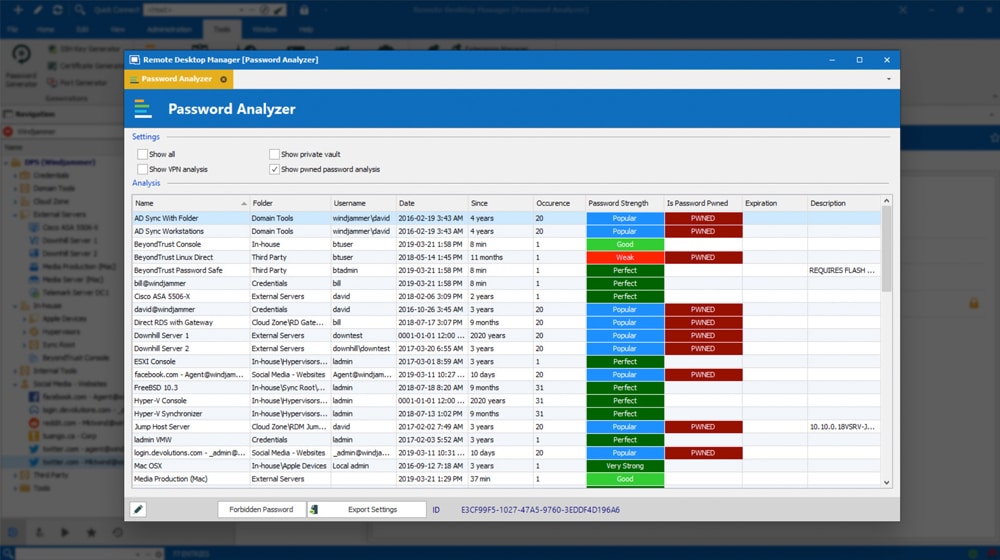
Now, a lot of these companies – the ones being shared, not the group buy managers – aren't going to just blacklist the URLs and names of the people using the account sharing system. After all, if I'm using it for competitor research, that would get my competitors banned from using the tool, and that isn't an appropriate solution. On the other hand, if you make the mistake of using primary features to link your business accounts, that can become an issue.
You also have to recognize that you're not the only one with access to the system. Other people using it may be able to see projects and data you save, and in some cases, can sell, mess with, or weaponize that data. That's not generally the primary concern you should have, but it could happen.
There's a lot of "it could happen" and not a lot of any stories I've heard of any of it happening, though, so who knows.
The Problems with SEO Group Buys
There are a few other problems with SEO group buys that I haven't mentioned above, but which can go a long way towards ensuring that you don't want to use them.
First of all, companies are constantly playing whack-a-mole with account sharing operations. At any time, one or more of the tools involved in the group buy might detect that the account is being shared, and will block it. When you're a major company and have the usage data for all of your customers on hand, it can be pretty easy to notice that most accounts look into 1-5 URLs at a time, so when one account pops up looking at 50 different URLs, it stands out. That's the kind of thing a sales team would look at and try to sell an agency-level plan, but otherwise stands out as account sharing.
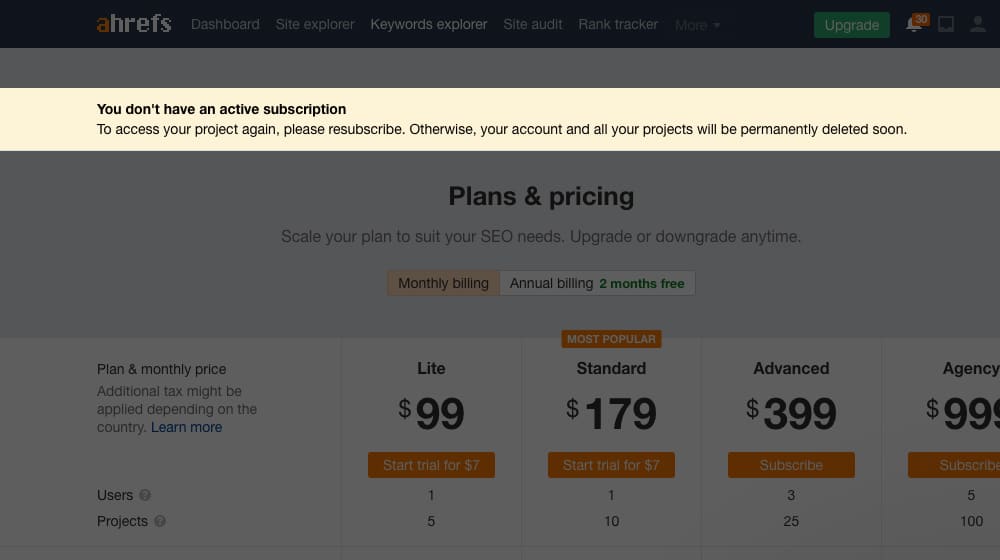
When a company notices the account sharing, it bans the account. That means, suddenly, one of the services you're paying to access is no longer available. It can take days, weeks, or months before the group buy owner takes action to replace it. They often have to generate a new fake identity, obtain new payment methods, and go through the process to set up a new account, all while changing the means they used to obfuscate it because IP/geolocation and other tracking has blacklisted them.
It makes SEO group buys very unreliable. You never know how long the services will be available, and whether or not they'll come back. It's also possible for the entire thing to be shut down, if someone tracks it back to the original group buyer, and pursues legal action against them.

Now, sure, typically the ringleaders of these operations are "safe" in their own way. They tend to reside in countries with difficult laws to manage and little or no extradition options. It's not like the United States Police is going to just jump into India and arrest some guy for sharing an Ahrefs account. What they might do, however, is work with the Indian government to crack down on fraud.
There's also zero way to know whether or not the services are even active before you pay for access. Most of the time, the group buy manager sets up an automated system to accept payment and deliver their credentials. You sign up, you pay for the service, you get the credentials they give you, you go to log in… and it's disabled. You can't access anything. Good luck contacting any sort of support; the group buy manager isn't going to answer your messages, or if they do, it'll be with platitudes, not anything real. You definitely won't get a refund.
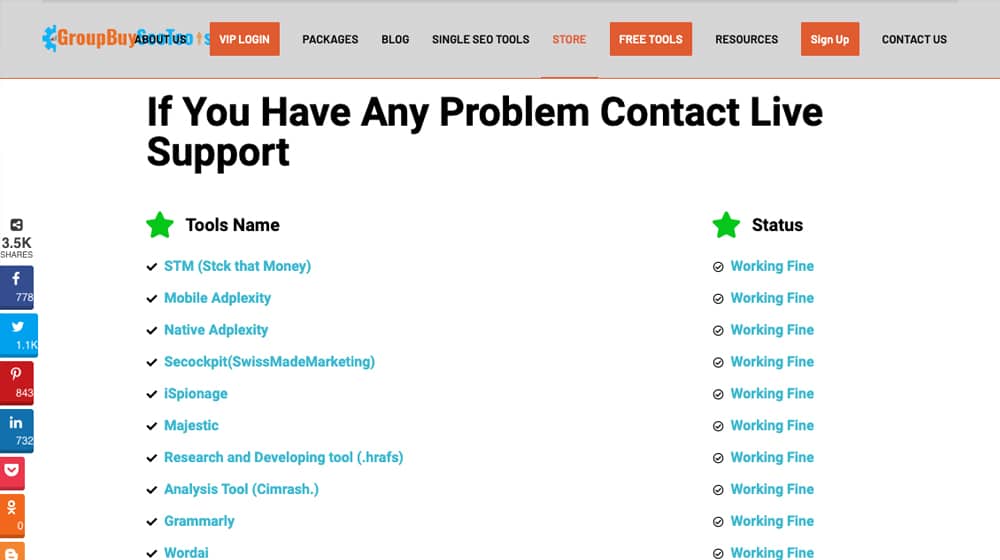
And, of course, there's the fraud aspect of it all. How do you think these group buy managers keep paying for the tools in the first place? 99% of the time, they're using stolen credit cards to do it. They buy stolen financial information online, they use that information to register quick accounts, which last for a month, maybe two before the card is cancelled and the payment bounces. When that happens, they try another one, and another one, and on and on. There's no shortage of stolen financial information available.
So even if you don't feel bad about ripping off companies providing you services that you feel are valuable enough to want to use, and even if you don't feel worried about breaking a ToS and violating contract law, and even if you don't worry about enriching a scammer in Bangladesh, you're still committing financial crimes.
What to Use Instead
SEO group buys are very much too good to be true. So what can you do instead?
- Leverage free trials. A lot of various services out there will allow you to try a free trial. In some cases, you only really need to use the service for a few weeks to get enough data to last you for years, if you use it right. You just have to know what you're getting, export it (manually, generally, since exports are usually a paid feature) and manage it on your own. You lose out on NEW data after your free trial expires, but that isn't always that big of a problem.
- Look for free or cheap alternatives. For every high-priced paid service, there are a range of free or cheap services that do similar things. You might have to find 3-4 free services to mimic all of the features of one paid service, and they might not be as good at it, but they can still give you plenty of data to work with.
- Focus on improving your own budget. Sometimes, rather than reinvesting your profits in finding another dropshipping supplier or paying for another graphic designer, it can be better to put that towards a tool. You need to analyze what the tool can provide – free trials are great for this – and figure out if you can get a positive return on your investment by paying for it. If you use Ahrefs and it lets you build enough links that you make $500 more a month than you were before, trust me, paying for Ahrefs becomes a good deal.
- Find an agency. A lot of marketing agencies out there use a wide range of the top-end tools you could only dream about affording, but the agency themselves is cheaper to hire than trying to hire even low-tier plans for all of those services on your own. Plus, the agency will have people who know how to use all of those tools effectively, whereas you might take months before you have enough experience to do it yourself.
At the end of the day, though, just avoid the SEO group buys. They aren't worth it, to you or to the companies you'd be trying to use through them.



 30 Second Summary
30 Second Summary



September 25, 2020
These people who offer a group buy are literally robbing the business. So I hope business owners like us will not tolerate and support this kind of thing.
September 28, 2020
Hi David!
It's certainly shady. The worst part of all of this is that they're usually using stolen credit cards to sign up in the first place, and then you're unknowingly signing into an account paid for with a stolen credit card. That's usually why they use remote desktop software to access their tools - so everybody accessing the software is doing so through a single IP (their IP), and to keep users safe so they aren't broadcasting their IP on an account with a stolen credit card.
Plus, the business owner gets hit with a bunch of chargebacks and disputes since they stole credit cards, so they get hit with fees and it hurts their relationship with the bank.
I recommend avoiding them. It's a clever idea, and no doubt valuable from a business perspective (getting all of those SEO tools for one small payment), but there are people having their cards stolen and businesses getting hit with chargebacks and fraud as a result.
It's hard to feel good about being party to any of that, however tempting the service itself may be.
April 07, 2021
Using a group buy is like stealing money from the business owner. If you are a business owner yourself, you should not support this kind of thing.
April 07, 2021
Hi Sherry! I completely agree.
I signed up for one of these over 10 years ago when I didn't know better. SEO group buys were a brand new thing and I was misled into thinking it was a legal account sharing service. Little did I know that these services are usually paid for with stolen credit cards.
After I signed up, there were so many red flags. Their PayPal account got banned, and they reached out to me aggressively (multiple times) to sign up again with their new PayPal account. Services would go down all the time. When I was able to log into an account, it would say that the account is past due, and their payment was declined. I had to remote desktop into this secure portal they built to visit the websites through a limited access browser.
Not only are these companies losing customers, but they're also getting hit with chargebacks from the stolen credit cards these services are using.
April 10, 2021
You explained it very well, the entire cons list. Generally, many people are forcing other people to buy these types of SEO group buy tools without even knowing about their authenticity for their affiliate commissions. That is very sad.
Once again thanks for the great article.
thank you.
April 14, 2021
Thanks! Yeah, I add myself to that column, I was ignorant to how the business model worked back then and the legality. Hope this spreads some awareness.
April 25, 2021
This article is very helpful, but I have some questions. What if a person is a SEO tool expert but still can't afford tools like Ahrefs? Ahrefs knows that these types of websites exist (you can Google it).
The group buyer is just like a regular buyer, buy the tool and then share with others and set a limit that is reasonable.
April 27, 2021
Hey Tahir!
Everyone has their ethical parameters and guidelines that they choose to abide by.
Ahrefs has a pretty generous 7 day trial for only $7.
Before committing to a paid membership, I signed up for this paid trial multiple times.
This may be an option for you until you have enough clients to justify paying for an ongoing membership.
There are also plenty of alternatives. We covered a list of the most popular Ahrefs alternatives here:
https://www.contentpowered.com/blog/complete-list-ahrefs-alternatives/
I just think it's important to know that this industry isn't as safe or reasonable as you think, and is commonly fueled by fraud and stolen credit cards.
The software they provide is a great deal for the price, but by supporting them you're also supporting credit card fraud. It's unfortunate, but that's the reality for most of these businesses.
Some people turn a blind eye to this because the value is too hard to pass up. I think it's still important to understand what you're about to buy and the harm that these services are doing.
January 25, 2022
That's a bummer. I've always wondered how they got away with it, there's a seedy underbelly to these sites and I had no idea that's how they operate. Even if there's no risk to me, I'd still feel wrong trying them out now that I know what's going on behind the scenes.
January 28, 2022
Hey Sharon!
I feel the same way. If anything, this has presented an opportunity for these tools to band together and create a legitimate SEO Group Buy. It would probably be more expensive, but they could add more perks and features to make it that much more appealing. Perhaps we'll see something like this in the future.
September 14, 2022
Glad I read this before signing up. That's pretty shady but it makes total sense. For some reason I thought these companies were authorizing the group share but this entire thing is super illegal. Thanks for the warning.
October 07, 2022
Indeed, you are very welcome!